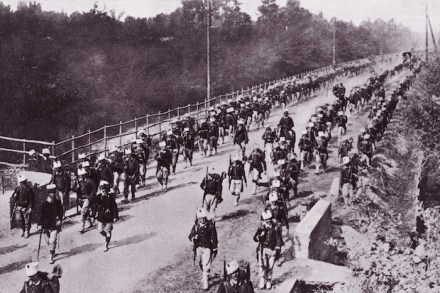The Spectator at war: A pilgrim in wartime
From ‘A Pilgrim in Wartime’, The Spectator, 10 July 1915: WITH a heavy bundle on her head, and gathered skirts which swung as she walked, I mistook her for a peasant carrying fodder home to the farm. Then as I saw the cockleshell sewn on to her cape my heart gave a bound. “O Pellegrina,
















